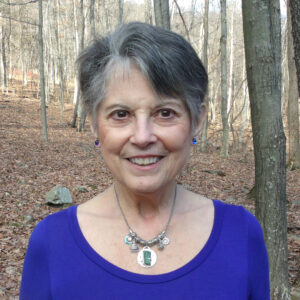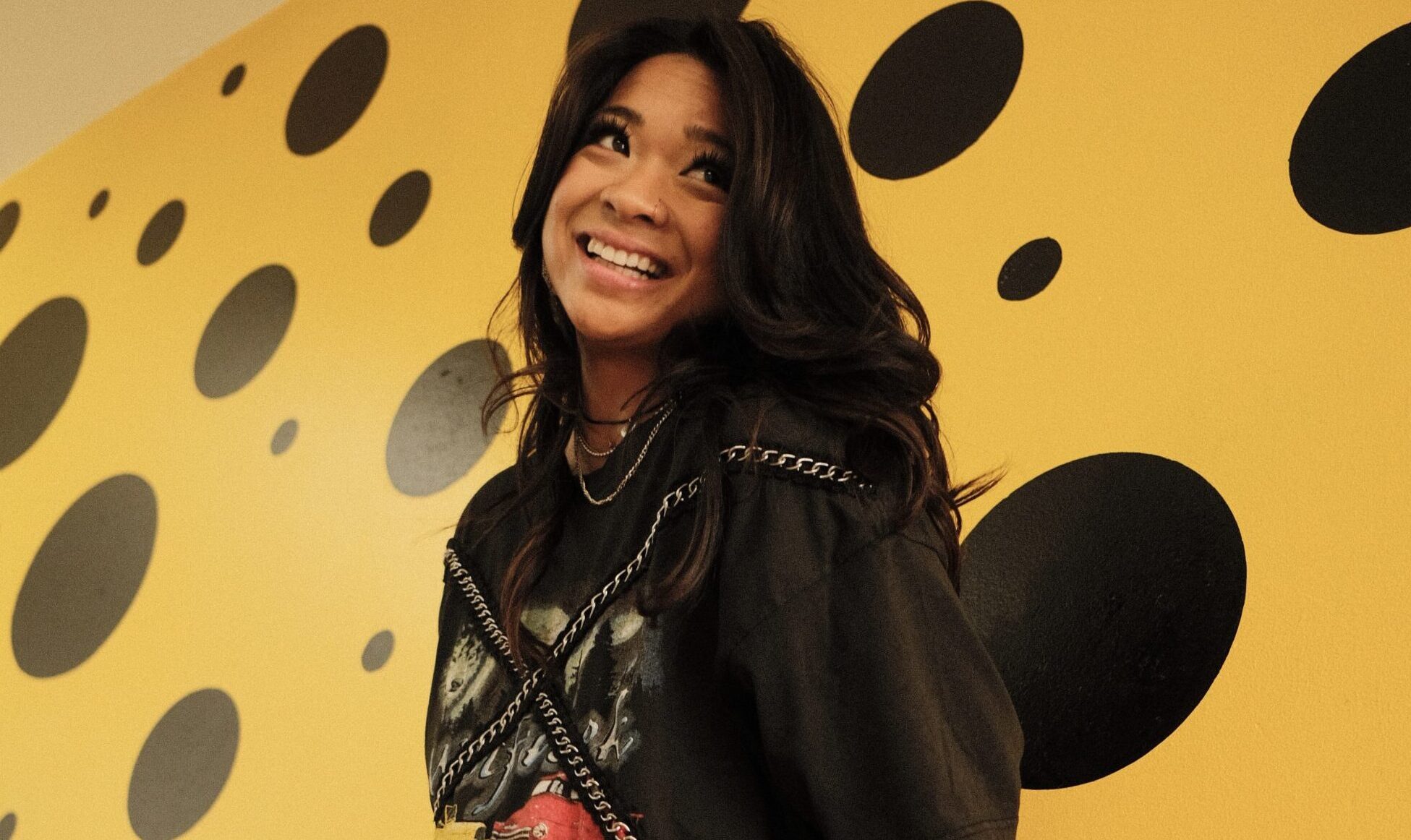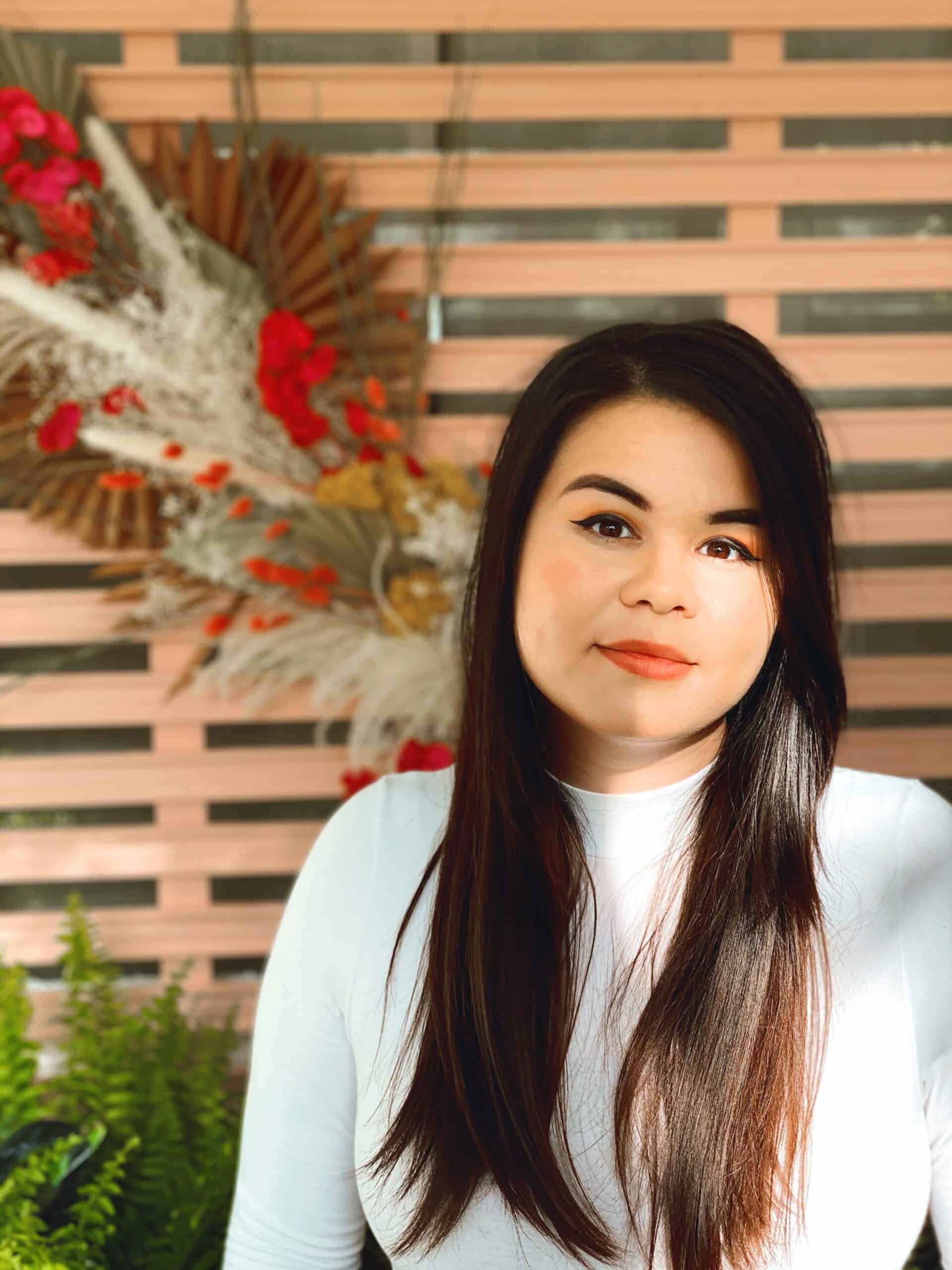Lena Papadopoulos, founder of Lena Papadopoulos LLC, embarked on a journey to transform leadership development and intercultural education by addressing their root causes rather than just the symptoms. Drawing from her rich background in cultural anthropology and international development, Lena recognized that the disconnection within us mirrors the divisions among us. Through her signature framework, (R)EVOLutionary Change™, she empowers leaders and changemakers to reconnect with their True Nature, fostering both individual and collective liberation. Lena’s own experiences as a first-generation Greek-American and her deep commitment to self-reflection and shadow work have shaped her unique approach, making her a beacon of hope for a more inclusive and equitable world.
What inspired you to start Lena Papadopoulos LLC?
I loved the work I did before starting my business. I had an incredibly meaningful and fulfilling career. But I felt limited by the way things were typically done in the realms of leadership development and intercultural education. Something was missing. It was the same issue I’d seen when studying international development and religious nationalism, war, and conflict. The vast majority of projects, programs, and trainings in these areas were band-aid solutions. We were treating the symptoms of an issue without meaningfully addressing the root cause(s).
After a decade of studying and working in these fields, I’d come to believe the division between us is a reflection of the disconnect within us. A disconnect from our True Nature, from our Soul’s Essence, from Love. I wanted my work to address that disconnection, which I perceived to be the foundation for systems of oppression. A lot of my work since starting my business has been more heavily focused on the inner aspects of personal and spiritual growth, but always driven by the same underlying question: how does this fit into the wider context of collective liberation?
I’m now bringing it all full circle and beginning to answer this question through my signature framework, (R)EVOLutionary Change, which outlines the intersections between individual suppression and collective oppression, as well as the way forward in repairing the disconnection from Self and Other to create systemic change rooted in individual and collective liberation.
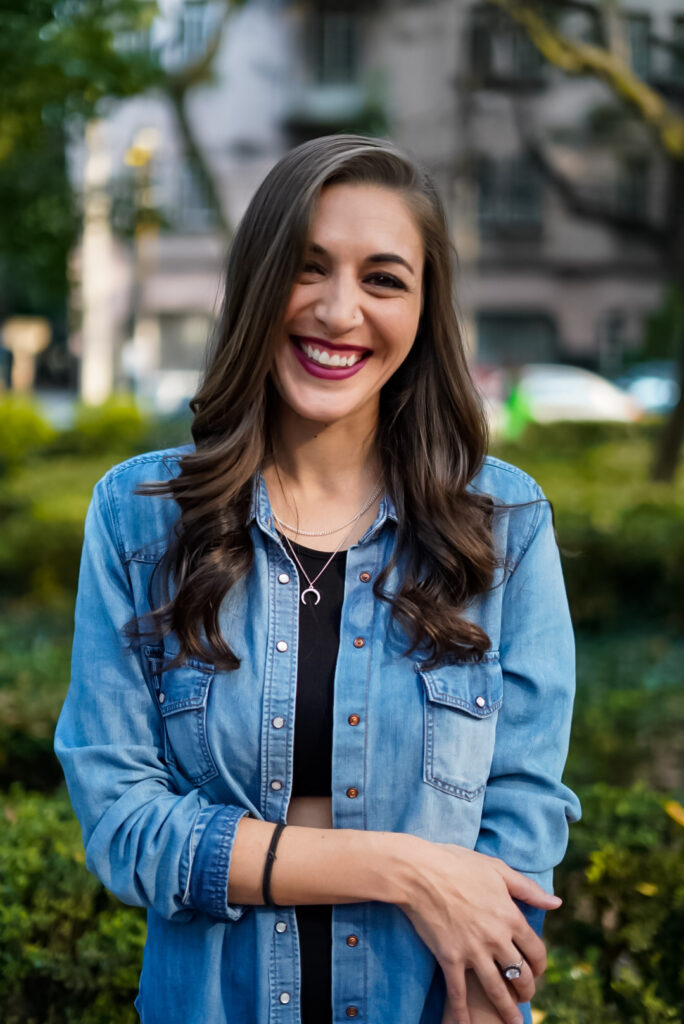
Can you share more about your personal journey and struggles with identity and belonging?
As the daughter of Greek immigrants in the United States, I grew up in the space between. I wasn’t American enough in the U.S., and I wasn’t Greek enough in Greece. I was too Greek in the U.S. and too American in Greece. I felt deeply misunderstood and always out of place. I was always either too much of this or not enough of that, depending on the context.
I carried this constant weight of rejection and the stories that came with it: no one likes me; no one wants me here; I make everyone uncomfortable. I dimmed my light a lot because of this. But it’s also what motivated me to create a different experience for others—to create spaces where people felt accepted as they are, where people felt a sense of belonging. In college, I got really involved with my campus’s international student community, because I wanted students from abroad to feel welcomed and supported. To feel they’d found a home away from home. This was a powerful and eye-opening experience that inspired me to get a Masters in cultural anthropology, which eventually led to the start of my career in intercultural education.
And in fact, the very thing that always led me to feel as though I didn’t belong, the fact that I straddle two different realities, is exactly what allows me to comfortably navigate the nuance and complexity of the human experience. There’s a lot of power in being able to hold space for different worldviews and perceptions of truth. It’s a gift that gives me the capacity to humanize others, and humanization is the foundation for a world in which all people everywhere are free.
How did your experiences with cultural anthropology and international development shape your perspective and work?
My experiences in these areas have been incredibly influential in the work I do now. While getting my MA in cultural anthropology, my research specialization was in religious nationalism, war, and conflict. I essentially studied the different ways fear and self-preservation manifest in a collective understanding of the “other” as enemy and the capacity for conflict to disguise itself as “culture.” I’d originally intended to continue on to a PhD, but I quickly realized academia wasn’t for me. There was a lot of stigma around anthropologists involving themselves in activism and social justice work, and I didn’t want to spend my life writing papers and books only other academics would read. I wanted to do something that made a difference.
So I started taking extra courses to complete a certification in International Development Studies, thinking I would later enter the field of humanitarianism. It was a short-lived dream. The international aid system is incredibly neocolonial and rarely, if ever, takes people’s lived experience into account. I wanted to eradicate systems of oppression, not amplify them.
Studying war and conflict has played a big role in helping me understand how self suppression leads to oppression, how the shadow self becomes a collective manifestation. I see this playing out in all the systems we live under—capitalism, the patriarchy, white supremacy, etc. These connections between self and systems are at the core of my (R)EVOLutionary Change framework. Likewise, studying international development in such depth has given me a unique perspective on how systems of oppression are playing out on a global scale. It’s provided a clear context for how these systems function and operate on the ground, which has really shaped my perspective on how we need to move forward in creating alternatives to these systems.
How do you navigate the intersectionality of your identities as a first-generation Greek-American and a white-passing individual?
This has interestingly been a significant part of my personal shadow work over the last year. As we began to witness the unfolding of genocide in Gaza, I had to have a real reckoning with myself about why I wasn’t fully showing up in the online space. Once I began to pull at the threads I already had some awareness around, I discovered a complex, multi-faceted, layered web of interconnectedness around these different aspects of my identity.
In the summer of 2021, I made a very conscious decision to stop posting about social justice on my social media. I’d become uncomfortable with how the digital space had changed in 2020 when it became “trendy” to amplify oppression online. Shaming. Call-outs. Canceling. I told myself things like: the online space is too limited to explore the many layers of any one issue; I don’t want to contribute to this dynamic of divisiveness; what I do offline matters more anyway. And these things are all true, but I’ve realized there was more going on under the surface.
On the one hand, I’ve recognized that I, too, had been shaming people in subtle ways. I was engaging in the very behavior that had caused me so much discomfort; I just didn’t want to admit it at the time. The other layer I’d suppressed was how deeply terrified I was of being called out, publicly humiliated, and canceled on the internet. So then, I had to ask myself why I was so afraid of this happening.
Turns out, it had a lot to do with internalized shame around whiteness. Though culturally, I’ve always related much more with my friends of color, I’ve always personally identified as white because I believe I have a responsibility around the privilege my appearance affords me. But I came to realize this was also because I was unconsciously choosing to define myself though a lens of white guilt and shame while rejecting my ancestral trauma around war and genocide.
My great grandparents on both sides fled a genocide against Greek Christians living in Anatolia (modern day Turkey) in the 1920s following the dissolution of the Ottoman Empire. This was why I’d studied religious-based conflict in graduate school. In fact, most of my research focused on the violence of Greeks against Turks because I didn’t want to simply accept the bias I had grown up with, the narrative that we were enslaved and oppressed and murdered by Turks—which was true—and, Greeks were also responsible for atrocities against Turks.
So in my desire not to be defined by the identity of the victim (which shows up in many different ways in my family of origin), I’d become defined by the identity of the oppressor. And the underlying fear in all of this, the reason I felt unable to show up in my advocacy online and the reason I was afraid of being called-out and canceled, is because I’d developed an unconscious belief that it wasn’t “my place” to say what liberation looks like as a white-passing individual.
This fear of being “wrong” in my advocacy led me to prioritize my own comfort (and therefore my privilege) over my convictions. This is one of the reasons shame alchemy is a core focus of my work in the world. Because shame is almost always at the root of self suppression. Shame is also almost always at the root of oppression. Shame stifles and immobilizes. Shame alienates and ostracizes. Shame diminishes and demeans. Shame disconnects and divides. If we want to create a just world defined by inclusion, equity, and belonging—shame is not the answer. Shame will never lead us to liberation. Not as individuals, nor as a collective.
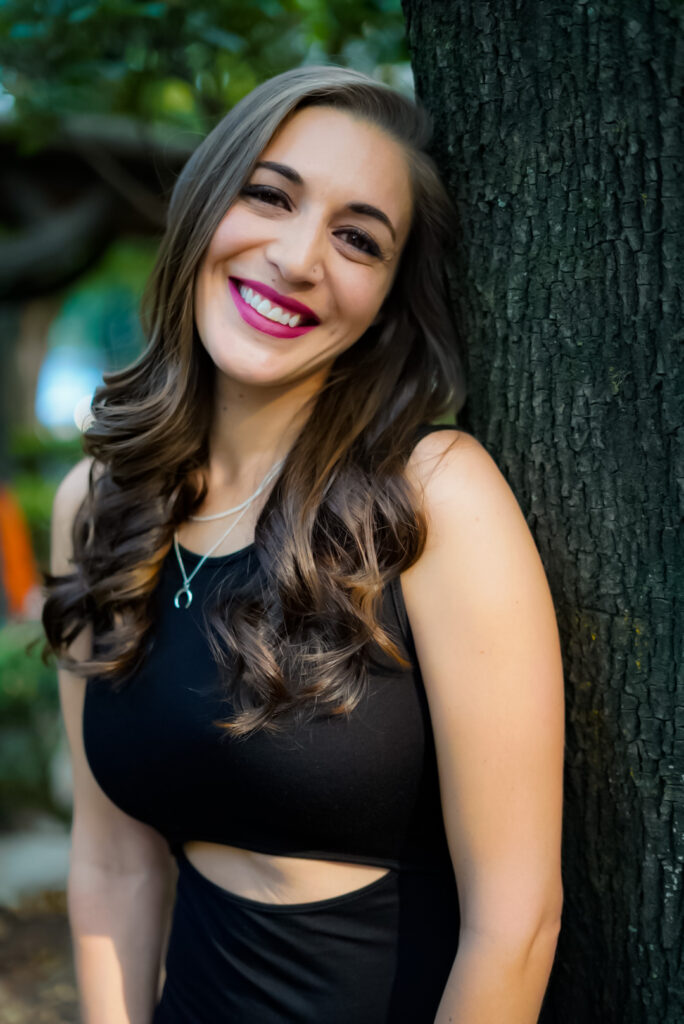
What role do you believe self-reflection and shadow work play in personal and professional development?
Carl Jung, who came up with the concepts of the shadow and shadow work, said, “The psychological rule says that when an inner situation is not made conscious, it happens outside, as fate.” In other words, our unconscious material, or our shadows, create our reality to an extent. What may seem to be happening “to us” throughout life (excluding systems of oppression), is oftentimes our own unconscious creation. We subconsciously create conditions and situations that confirm our unconscious bias and beliefs about ourselves and the world.
This is why I believe self-reflection and shadow work are absolutely essential to our growth, personally and professionally. Because they offer us a greater degree of autonomy and agency in our lived experience through our ability to make conscious choices. This is how we break patterns of codependency and people-pleasing in our relationships, learn how to use our voice to amplify causes we care about, step into our power and potential as leaders, for example.
And, if we hope to be catalysts for liberation, we have to befriend the shadows. Not only does an awareness of our shadow empower us to disrupt the unconscious patterns that lead to persistent cycles of pain in our lived experience, but this awareness also provides powerful insight into the ways in which oppressive structures and systems are rooted in the collective shadow. Once we discover just how pervasive our unconscious patterns are, we can better understand how they eventually come to rule the world. The bravery required to bring your own shadow into the light is the same bravery that will change our world.
How do you approach helping leaders and changemakers step into their fullest self-expression and show up for individual and collective liberation?
Before we can step into our fullest self-expression, we first have to become aware of all the beliefs and patterns that block us from feeling safe to show up in our Truth, and many of those beliefs and patterns are actually unconscious. I use evolutionary astrology as a tool to illuminate those unconscious blocks, and then I use a process of shadow work to alchemize the shame connected to those blocks.
Evolutionary astrology is a unique approach which allows us to look at a person’s birth chart in terms of their soul’s evolutionary intention across lifetimes. When I’m giving a reading, some of the things I highlight are the Soul’s deepest desires, past life trauma signatures, and the path to living one’s Soul’s purpose with more ease. So often we see unconscious patterns playing out as a repeat of energetic signatures carried over from past life experiences, which then become reinforced in early childhood conditioning. So I use the chart in my work with clients to identify the unconscious beliefs and patterns that are standing in the way of them showing up fully in their Truth and living their Soul’s purpose.
When we talk about the shadow, many people think of something dark and taboo, it’s typically associated with something negative. But the shadow is simply that which is unconscious…parts of self that have been repressed, usually because we’ve internalized some sort of shame around those parts. Oftentimes, the parts we’ve repressed are actually our greatest gifts and portals to our personal power. And so we find ourselves facing the same problematic patterns, repeating cycles that leave us feeling frustrated, unclear, and unfulfilled.
I use the chart to identify the shadows, and I use shadow work to transmute them into light. With shadow work, I help my clients uncover the root cause or origin of their shadow(s), offer love and compassion to those disowned or rejected parts of self, and replace disempowering thoughts and beliefs with a self-concept rooted in their strengths and gifts. A lot of this process is about reorienting one’s self-perception toward self-acceptance and self-belief, so they feel empowered to act in congruence with their convictions, without worrying about judgment or criticism from the outside.
As leaders and changemakers, we have to be willing to shine a light on our own shadows. To meet ourselves at our edges. To sit with difficult and uncomfortable truths. This is how we fortify our capacity to hold our big vision for the world, to bring our unique medicine forward, to live our mission with integrity and in congruence with our convictions. This is how we break through the barriers within us, so that we can dismantle the systems around us.
What advice do you have for women who are struggling to find their place or voice in their respective fields?
There is so much I could say about this. As women, it’s difficult to feel confident in our belonging and/or in using our voice for so many different reasons. I’ll share my perspective on two of the layers I most often see showing up for the women I work with—one is a fear of being misunderstood; the other is a fear of inadequacy or imposter syndrome.
If you’ve always felt misunderstood or out of place, it’s probably because you’re here to change the norm. The world we live in wasn’t made for people like you, which is exactly why you’re so needed in it. You’re here to break cycles and shift paradigms, and that requires you to think, do, and be different than most of the people around you. Lots of people aren’t going to “get it,” but shifting away from the norm is the only way we can create meaningful change in our world.
Then, there’s this fear that we don’t know enough, we’re not qualified enough, we’re not embodied enough. Oftentimes, what validates this insecurity is the fact that we really struggle with the things we’re drawn to helping others with. Like yeah, I can help you with this, but I’m not very good at doing it for myself or in my own life, so I must be an imposter or a hypocrite. Here’s the thing I can say with confidence based on the themes and patterns I see in my soul purpose astrology readings—the things your Soul came here to learn how to do, the thing you struggle with the most, is the very thing you are designed and equipped to help others with. Because it’s through the challenges we ourselves experience that we gain wisdom and lessons we can share with others, even if we find it hard to apply them for ourselves.
This is why supporting my clients to strengthen their self-concept is a big part of my work. The world-changing work we want to do requires us to be fortified in the foundation we’re standing on. To be deeply rooted in our why, our values, our gifts, our convictions, our Truth. But for many of us, the foundation we’re building on often isn’t strong enough to support the monumental change we want to make—or the magnitude of the power we’re here to embody.
You believe so strongly in the change you want to create, but you may struggle to believe in yourself. You might not feel confident in your capabilities or grounded in your gifts. You might feel wobbly or unanchored in your sense of self. We’ll go to great lengths to protect ourselves from the possibility of judgment or criticism or rejection. From that feeling of not belonging or being misunderstood. But you’re here because the world needs the medicine only you can offer. And if you hold back or keep yourself small because of fear, we’ll miss out on that magic. Strengthening your self-concept is about shifting the way you think about yourself, so you can believe in your own magic. So you can fortify your capacity to live and lead from your Truth. So you can stand strong and sovereign in self-trust. So you can lead yourself and others with unwavering confidence. The world needs more leaders like YOU. But you have to believe it first.

How do you envision your work contributing to (R)EVOLutionary Change™ and liberation?
My (R)EVOLutionary Change framework is rooted in the idea that revolutionary world change and collective liberation must be sourced from Love—open-mindedness, non-judgment, acceptance, compassion, empathy, humanization. Because when we create a world in which it feels SAFE to come home to the Truth of who we are, there is no longer a need to suppress ourselves or to oppress others.
We live in a colonial empire built on the dehumanization and displacement of Black and Brown people, on the destruction of their lands, their homes, their lives. A world we allow to continue through our conformity, our complacency, our complicity, all of which are rooted in our conditioning. In our disconnection from our Truth, from our Soul’s Essence, from Love.
My mission is to bring us back home to that Truth. To liberate ourselves from the confines of our conditioning so that we can liberate one another from global systems of oppression. There are too many heart-led humans keeping themselves small out of fear of being misunderstood. Too many heart-led humans full of self-doubt and a lack of confidence in their gifts, in their medicine. Too many heart-led humans who hesitate to speak their Truth and stand firm in their convictions for fear of criticism, rejection, or abandonment.
All while power-hungry oligarchs control, extract, and exploit people and the planet without consequence. While our humanity is degraded and denied by corruption and collusion rooted in despotism and nepotism. I do the work I do because this world needs more heart-led, human-centered leaders and changemakers who are willing to risk being misunderstood.
Because leading in integrity and in congruence with our vision for a better world matters more than the discomfort we feel when people don’t “get it.” Because we are here for a purpose and we are called to trust that everything we need to fulfill our divine mission is already within us and part of us. Because our innovative, unconventional, and “weird” ideas and perspectives are exactly what allow us to imagine a new and different and better world.
If we’re going to give birth to that world, we damn well better believe we’re capable of it. That’s why I’m here. To show leaders and changemakers just how much power they have to create change once they reconnect with their Truth. To help them strengthen their self-concept and act from a place of true empowerment. To help them cultivate the fortitude to hold their big vision for the world. So they can bring your unique magic, medicine, and magnetism into the light. So they can live and lead and BE in congruence with the calling of their Soul. Because that reconnection with Self is what makes liberation possible.
https://www.lenapapadopoulos.com



